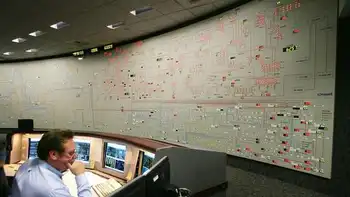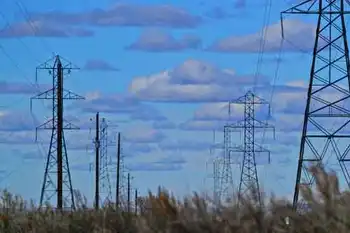Planning gets taste of unpredictability
By Associated Press
High Voltage Maintenance Training Online
Our customized live online or in‑person group training can be delivered to your staff at your location.

- Live Online
- 12 hours Instructor-led
- Group Training Available
Among them: energy prices that hit records, then fell by more than two-thirds in a matter of months; a new president whose long-term plans for the environment are just beginning to emerge; escalating construction costs and a recession locking down credit markets in a manner the nation hasn't seen in decades.
Less than 18 months ago, Entergy Corp.'s plan to convert a generator at the Little Gypsy plant in southeastern Louisiana from natural gas to petroleum coke fuel seemed like a great long-term deal for electricity ratepayers, environmentalist opposition aside. In November 2007, when the Louisiana Public Service Commission approved the project, gas prices were way up and consumers were taking a shellacking on their monthly bills.
Now, with gas well below $4 per thousand cubic feet, Entergy wants to put a hold of at least three years on the plan. Not only did the fall of gas prices figure into the equation, so did the still-murky plans of the administration of President Barack Obama to control emissions and perhaps impose carbon taxes that would render the project worthless in terms of savings to ratepayers. They pay directly the cost of whatever generating fuel is used.
Now, $300 million into the project that has seen estimated completion costs escalate from $1 billion to $1.7 billion, Entergy Louisiana ratepayers may get hit with at least part of the bill, depending on eventual action of the PSC.
Speaking of utility planning, there's also the case of Lake Charles Cogeneration, which wants to build a plant to produce synthetic natural gas to market to power companies and consumer gas providers. That might have been a fine idea when $1 billion worth of Gulf Opportunity Zone bonds were sold to finance the project in 2007 — but utilities are turning a cold shoulder to buying the product since gas prices have fallen.
The future of the project — with or without high-powered lobbyist and former U.S. Sen. J. Bennett Johnston pushing the PSC to get involved — is hazy. Entergy, in particular, says it's reluctant to engage in the 30-year contract LCC wants, which would guarantee the company would take 80 percent of LCC's synthetic gas output. The PSC thus far has declined to get into the dispute.
But if the natural gas market follows oil, just wait for the next supply crunch. History clearly says that what is down won't stay there forever — especially with commodity speculators driving oil prices to records even as the world sank into recession last year.
Energy prices with a stiff dose of poor long-term planning have reduced the U.S. auto industry to near-destitution.
A few years back, sales of Hummers and General Motors trucks, both made by GM in Shreveport, were rocking. Then came $4 a-gallon-gasoline that killed sales. An ensuing fuel price fall then left U.S. automakers wondering what they ought to be building — a concern that has escalated into just staying in business as credit has tightened and drivers are more likely to take the clunker in for another oil change, rather than visiting a showroom.
Of course, energy prices figure into other future plans. Louisiana's power prices have been cited as a detraction to attracting new businesses. Will the state have to stay with natural gas as the fuel of choice? Will restrictions on coal emissions negate the competitive advantage of such states as Alabama that have cheaper electricity? Is nuclear power on or off the shelf? And, if and when, will alternative energy sources be rolled out on a commercially practicable basis?
Maybe the warning was issued two generations back by the sociologist-author Alvin Toffler, whose 1970s "Future Shock" predicted people would be hit by too much change too quickly to adequately cope. Change is here — and coping with it, to say the least, is often a bit more than just a challenge.











